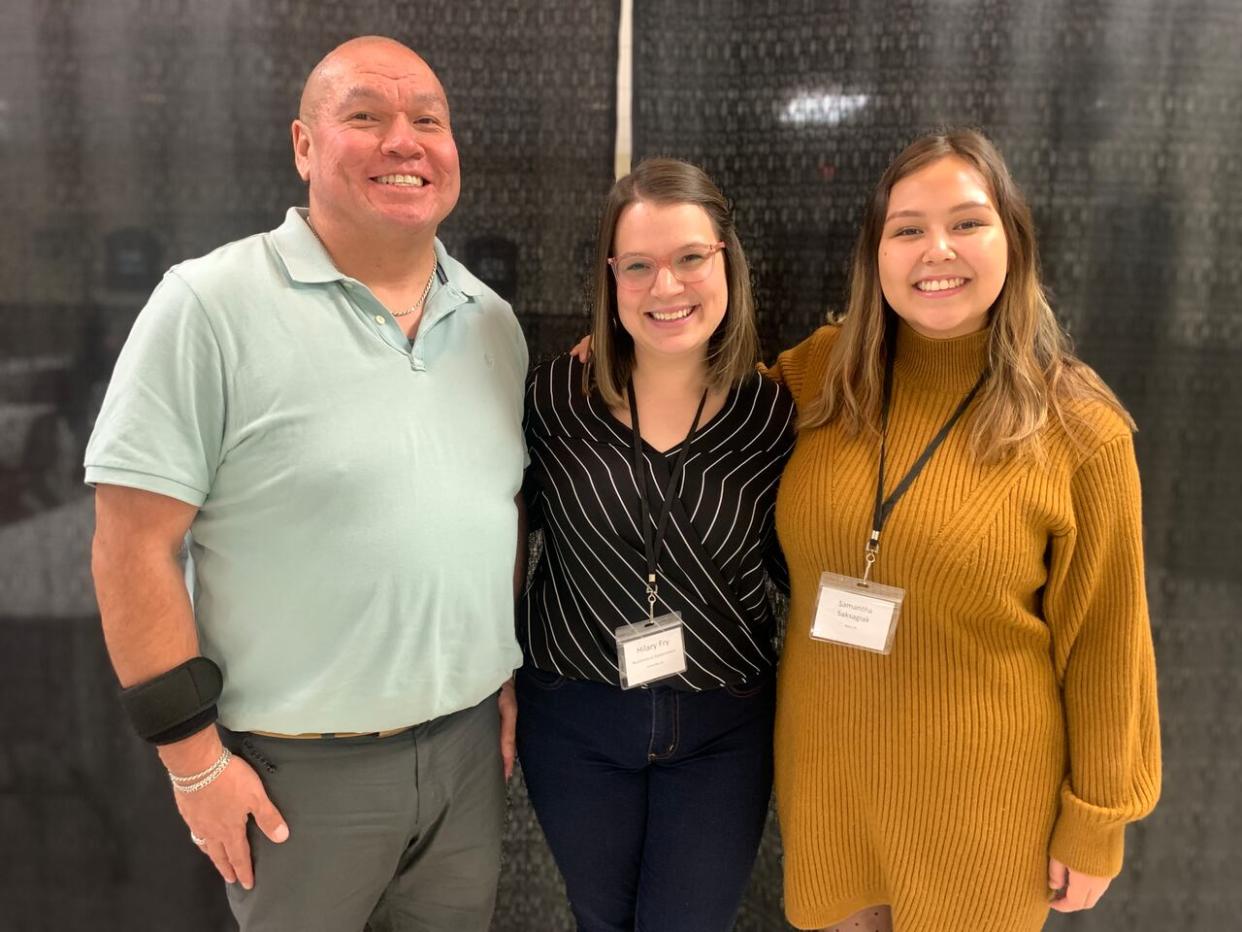More than racial slurs: Nunatsiavut government to tackle systemic racism


From left to right, Gerald Asivak, Hilary Fry, and Samantha Saksagiak. They participated in an anti-racism forum in Happy Valley-Goose Bay to build guidelines to combat racism within different public systems like health care, justice, and education. (John Gaudi/CBC)
Samantha Saksagiak, at 19 years old, is the youngest participant in a Nunatsiavut-led forum on systemic racism.
In Happy Valley-Goose Bay, participants from Indigenous communities, along with non-Indigenous managers and workers from various public systems such as health care, education, and justice, shared their experiences with racism and suggested ways to eradicate it from these systems.
Saksagiak, who lives in Nain, spoke at last week's two-day forum about the racism she faced in high school and later in university.
"It's very emotional ... having to talk about your own personal experiences," Saksagiak said. "And how racism affects your whole community and your family definitely hits home.
"I've been told that because I'm Indigenous, I'm not good enough, that I'm not as educated as a white person."
She told participants the things she'd heard growing up — that, for instance, "the white way is the right way" — and said those messages eroded her self-esteem.
"I even felt ashamed to be Inuk because of how the system works and how it makes you feel, like you are less than … that you're not even a person. And it just really hurts my heart that I was made to feel that way."
Gerald Asivak, the Nunatsiavut minister of health and social development, says he too faced racism.
"I've experienced it," he said. "Living here and moving away, or even because of the colour of my skin, there might be perceptions or stereotypes because I am a Labrador Inuit."
In his role, Asivak often hears complaints about racism in health care, incidents that are sometimes covert and other times more direct.
"It's a sad reality that it's still happening in 2024," Asivak said.
"We have to continue lobbying, being heard, [actively] listening and calling out people, not only people, but systems, agencies, organizations. We have the right to feel safe. We need to end racism and this will help with that."
Hilary Fry, the Indigenous health relations manager with the Nunatsiavut government, says racism doesn't have to be racial slurs. It can also take on a more subtle form and become ingrained in a system.
"Our policies that shape practices are putting Inuit and other Indigenous folks at a disadvantage and I think to the historical context need to be at the forefront," Fry said.
Fry says that history, still present in the trauma that people carry, includes events like the residential school system and forced relocations. She says that being aware of this history can guide both policy and care providers.
Using the forum's conversations, Fry says she's developing a framework that can be used to combat systemic racism.
"We're giving people their voices," Fry said. "I'm hoping in the future as we compile all these findings that I'll be able to come up with some sort of practice guideline that can be utilized by our non-Indigenous systems."
Meanwhile, Asivak says he hopes everyone will step up to end racism in day-to-day life.
"Even if your friend is exhibiting that poor behaviour, call them on it. Sometimes it's very difficult. But that's one way to slowly eliminate it because that's where it starts — with you. And taking your own power and letting it be heard."
Download our free CBC News app to sign up for push alerts for CBC Newfoundland and Labrador. Click here to visit our landing page.


